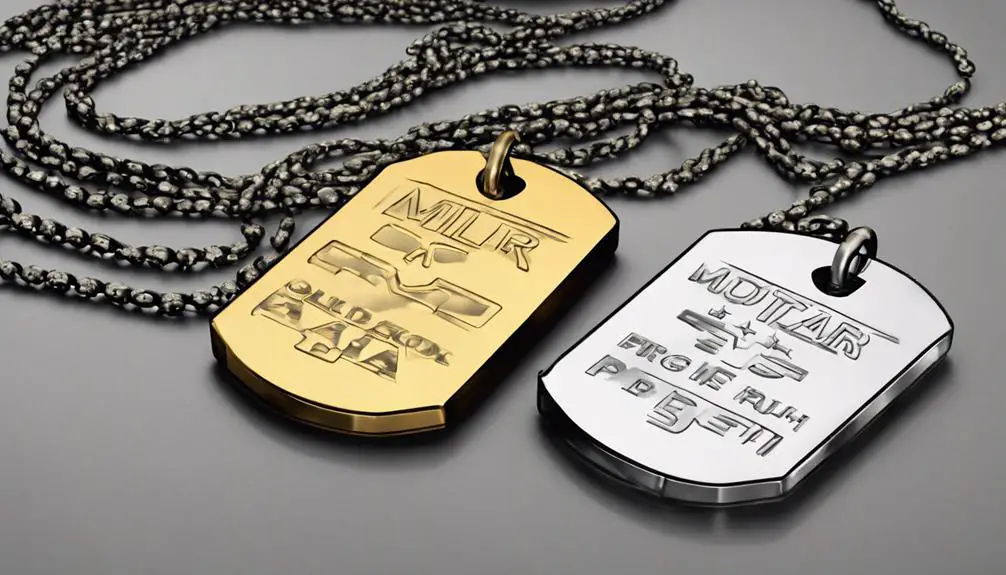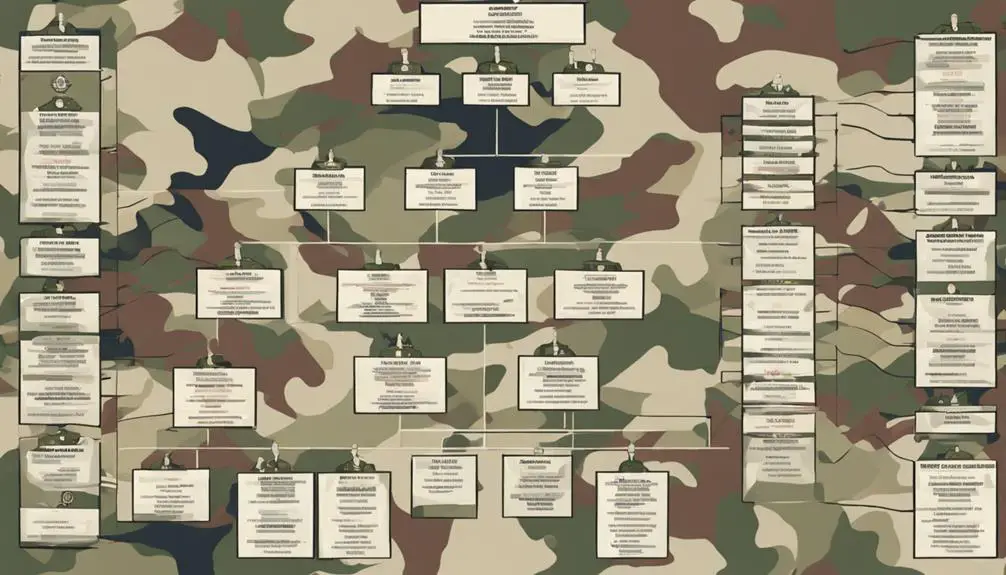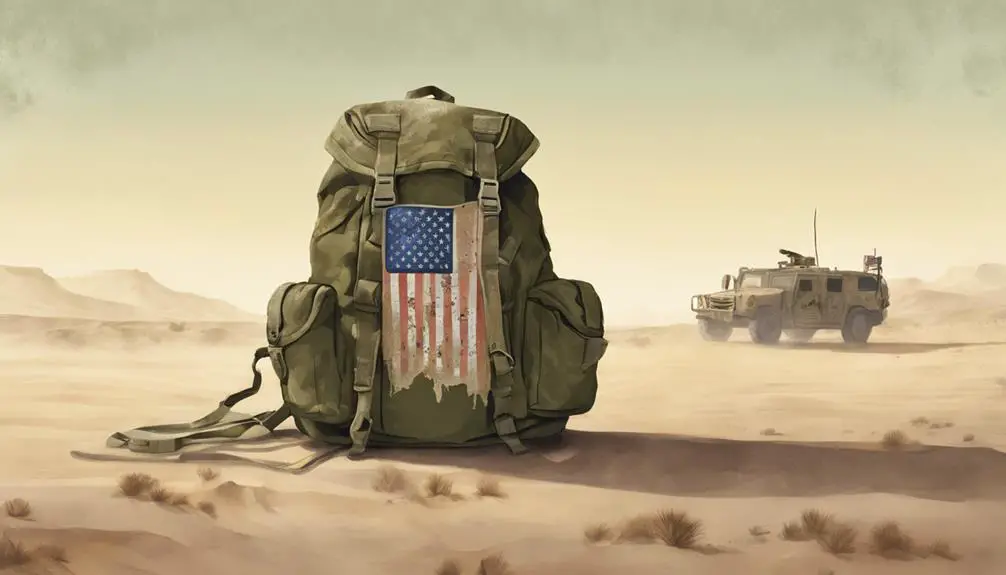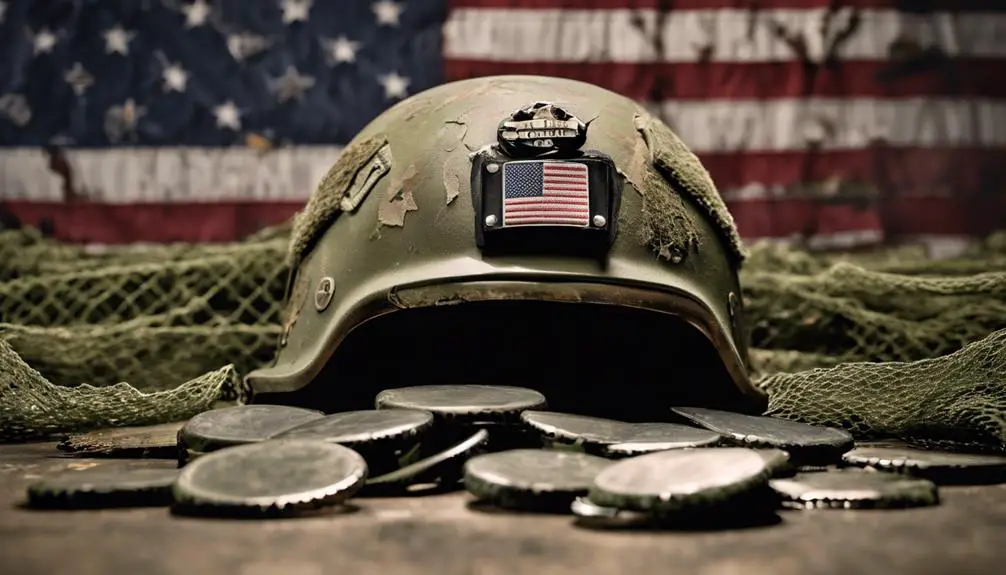You'll encounter a unique language when interacting with military personnel, comprising acronyms, slang, and jargon that can be confusing to outsiders. Familiarize yourself with essential acronyms like FOB, SOP, and ASAP, which are used daily. In mission operations, terms like Exfil, OpOrder, and CAS are vital. You'll also hear phrases like Hooah, ROE, and SITREP, which are an integral part of military communication. As you explore the world of military slang, you'll uncover more nuances and specialized terms that'll help you better understand the culture. From ranks and roles to jargon and phrases, there's more to discover.
Essential Acronyms to Know

As you explore the world of military slang, it's important to familiarize yourself with essential acronyms that will help you interpret communications and navigate military culture.
One important term to know is FOB, which stands for Forward Operating Base. This acronym originated from the need to quickly identify temporary military bases established in remote areas. Knowing FOB lingo will help you understand conversations about military operations and logistics.
Other key acronyms include SOP (Standard Operating Procedure), ASAP (As Soon As Possible), and COC (Chain of Command). Understanding these terms will help you decipher military communications and reports.
It's also important to recognize that acronyms often have origins rooted in military history and culture. For instance, the term 'SITREP' (Situation Report) originated from World War II, when military leaders needed a concise way to report battlefield updates.
Familiarizing yourself with these important acronyms will give you a deeper understanding of military culture and help you communicate more effectively with military personnel.
Slang for Mission Operations
When you're embedded with a unit, you'll hear operators use slang like 'exfil' to signal extraction from a hot zone, highlighting the importance of understanding mission-focused lingo. This terminology is vital for effective communication during operations.
Familiarize yourself with OpOrder nuances, which outline the who, what, when, and where of a mission. You'll hear operators discussing the SitRep, or situation report, which provides critical updates on the mission's progress.
In the heat of the moment, clear communication is key. That's why operators use shorthand like 'CAS' for close air support or 'QRF' for quick reaction force. These abbreviations save time and lives.
When you're in the midst of a mission, every second counts. Understanding these terms ensures you're on the same page as the operators, allowing you to provide critical support when it matters most.
Ranks and Roles Explained

You'll encounter a range of ranks and roles within a military unit, each with its own set of responsibilities and expectations that are essential to understanding the chain of command.
The Officer Hierarchy is a clear structure, with commissioned officers holding leadership positions. They're responsible for making strategic decisions, leading teams, and overseeing operations. Enlisted personnel, on the other hand, carry out the day-to-day tasks and operations. Their responsibilities vary depending on their Military Occupational Specialty (MOS), but they're the backbone of the military, executing the plans laid out by officers.
As you navigate the military, you'll encounter different roles, such as Non-Commissioned Officers (NCOs), who serve as a bridge between officers and enlisted personnel. NCOs provide guidance, training, and leadership to junior enlisted personnel. Warrant Officers hold specialized expertise and provide technical guidance.
Understanding the different ranks and roles will help you communicate effectively and respect the chain of command. Remember, each role has its own unique responsibilities, and recognizing them is essential to success in the military.
Military Jargon for Newbies
Now that you're familiar with the ranks and roles within a military unit, it's time to learn the language that connects them all: military slang. As a newbie, it's normal to feel overwhelmed by the unfamiliar terminology and acronyms thrown around by seasoned veterans.
It's like experiencing culture shock all over again, but this time, it's a linguistic adjustment.
To ease your shift from civilian to military life, here are some essential phrases to get you started:
- ROE: Rules of Engagement, guidelines for when to use force
- SITREP: Situation Report, a brief summary of the current situation
- COMMS: Communications, referring to radio or phone conversations
- OPSEC: Operational Security, protecting sensitive information
- Debrief: A post-mission review to discuss what went right and wrong
Mastering military jargon takes time and practice, but with this primer, you'll be well on your way to navigating the complex world of military communication.
Common Phrases in the Field

In the field, phrases like 'Hooah' and 'Oorah' become ubiquitous, serving as a way to express enthusiasm, acknowledge orders, or simply to boost morale. You'll hear them frequently, especially during intense training exercises or in high-stress combat situations. These phrases are an integral part of Tactical Speak, allowing soldiers to quickly convey complex ideas or emotions in high-pressure environments.
As you become more familiar with Field Lingo, you'll start to notice other common phrases being used in the field. For instance, 'SITREP' is often used to request a situation report, while 'ROE' refers to the Rules of Engagement. You might also hear 'HVT' to describe a High-Value Target or 'CASEVAC' to request a casualty evacuation.
Mastering these phrases is essential for effective communication in the field. It's not just about using the right terminology; it's about being able to convey critical information quickly and accurately. By incorporating these phrases into your vocabulary, you'll be better equipped to operate in fast-paced, dynamic environments.
Lingo for Military Life
Beyond the battlefield, military slang permeates everyday life, with phrases like 'chow' for food and 'rack' for bed becoming an integral part of a service member's daily vocabulary. As you navigate military life, you'll find that slang is an essential part of the culture. It's not just about communicating effectively; it's about being part of the community.
Here are some essential terms to get you started:
- Sick call: A medical appointment (not necessarily because you're sick)
- R&R: Rest and relaxation (time off from duties)
- FNG: Freaking New Guy (a newbie, often used in a joking manner)
- O-dark-thirty: An extremely early hour (e.g., 4:30 AM)
- Scuttlebutt: Gossip or rumors (originally referred to a water fountain on ships)
These phrases will help you fit in with your fellow service members and show that you're part of the Boot Camp Culture. Remember, military humor often relies on sarcasm and irony, so don't be afraid to poke fun at yourself and the absurdities of military life. By embracing this lingo, you'll become an insider, and your military experience will be all the richer for it.
Frequently Asked Questions
What Is the Origin of the Term "Grunt" for Infantry Soldiers?
You're curious about the origin of 'grunt' for infantry soldiers.
Well, it's not just a random term. The term 'grunt' emerged in the Vietnam War, referring to the sound infantrymen made while carrying heavy packs and equipment.
You're fundamentally a 'Ground Pounder,' getting down and dirty on the battlefield.
It's a badge of honor, a Battle Cry of sorts, symbolizing the toughness and resilience of those on the front lines.
Is Military Slang Used Across All Branches of the Military?
As you explore the world of military lingo, you'll find that branch differences are like different dialects of a universal language. While Army, Navy, Air Force, and Marines each have their unique slang, they also share a common tongue.
You'll hear 'Hooah' in the Army, 'Oorah' in the Marines, but both mean 'yes' or 'let's go.' Despite these differences, military slang is used across all branches, serving as a common thread that weaves them together.
Are Military Slang Terms Used in Formal Military Communications?
When you're communicating through formal channels, you'll rarely find military slang terms making an appearance. That's because official language is the norm in formal military communications.
You'll stick to standardized terminology to guarantee clarity and precision. Slang might be useful in casual conversations, but it's not suitable for official reports, briefings, or orders.
You'll use formal language to convey complex information accurately and avoid misunderstandings.
Can Civilians Use Military Slang Without Offending Veterans?
When using military slang, you walk a fine line between cultural appropriation and respectful adoption. While it's not about seeking permission, being mindful of the origins and context is essential.
You can't just drop terms like 'HOOAH' or 'OORAH' without understanding their significance. Be respectful, do your research, and use them thoughtfully.
Do Military Slang Terms Change Over Time or Remain Static?
As you explore the world of military communication, you'll find that language is a dynamic battlefield. Do slang terms remain static or evolve over time? The answer is clear: they adapt and morph like a chameleon in the shadows.
Evolving lingo is a hallmark of linguistic adaptation, a survival mechanism in the ever-changing landscape of military operations. You'll discover that terms rise and fall like the tides, reflecting the needs and experiences of those who serve.
Conclusion
You've made it through the crash course on common military slang. You might still be thinking, 'But what if I forget?' Relax, it's normal to need some time to absorb the lingo.
The more you're exposed to it, the more it'll become second nature. Start by practicing with the essentials, and soon you'll be tossing around terms like a pro.
Remember, it's okay to ask if you're unsure – and don't be afraid to correct others if they're using terms incorrectly.







